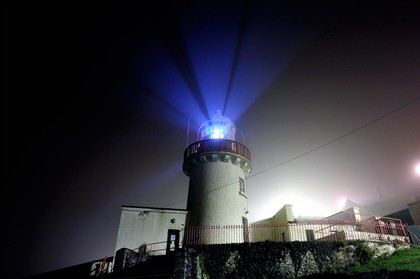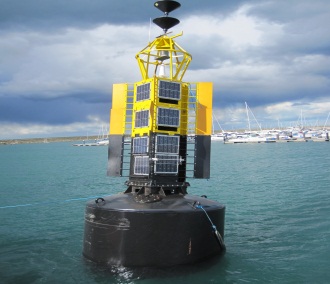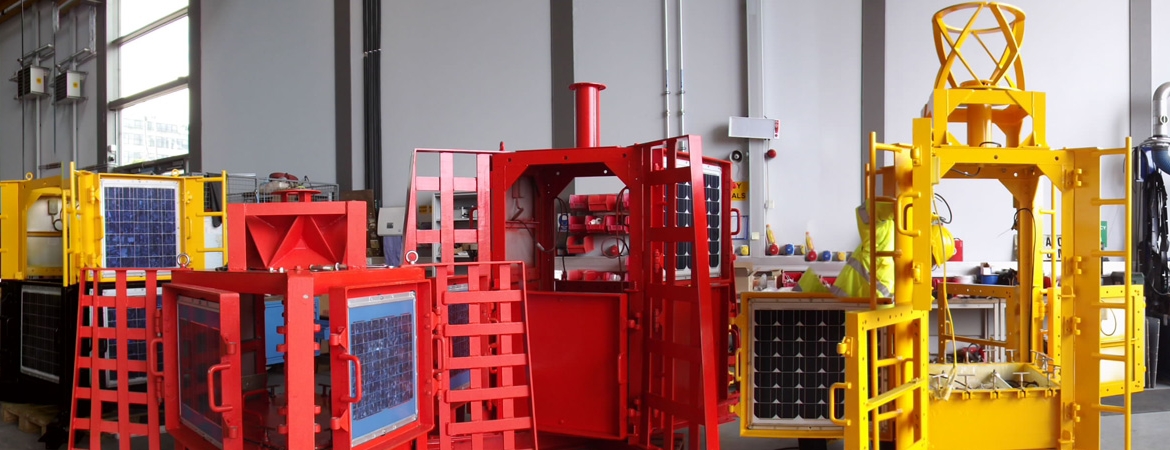 What we do to assist the safe passage of mariners
What we do to assist the safe passage of mariners
The Commissioners of Irish Lights superintend and manage all lights, buoys and beacons around the coast of Ireland. We provide most of the main lighthouses and other marine aids to navigation (AtoN) outside harbour limits.
We are the General Lighthouse Authority for all of Ireland, its adjacent seas and islands. We carry out the obligations of the Irish and British governments in relation to providing AtoN around the coast of Ireland commensurate with the amount of traffic and degree of risk under the International Convention for the Safety of Life at Sea, known as SOLAS (see below).
What is the role of Irish Lights?
As the General Lighthouse Authority (GLA) for the whole of Ireland, its adjacent seas and islands, we:
- Provide and maintain lighthouses, buoys, beacons and radio aids to marine navigation to assist the safe passage of all classes of mariners in general navigation.
- Sanction the establishment, alteration or discontinuation of local AtoN in ports, harbours and on coastlines that are within the jurisdiction of a local lighthouse authority, in accordance with international standards. This includes sanctioning the marking and lighting of fishfarms, oil and gas platforms, renewable energy devices and other hazards to navigation.
- Carry out inspections of local marine aids to navigation to ensure compliance with international standards and the statutory sanction granted.
- Mark or remove wrecks that are a danger to navigation, where no harbour or authority has the power to do so.
Related Acts and regulations
- The statutory basis for Irish Light’s activities in the Republic of Ireland is the Merchant Shipping Act 1894, the Merchant Shipping (Salvage and Wreck) Act 1993 and the Merchant Shipping (Commissioners of Irish Lights) Act 1997.
- The statutory basis for Irish Light’s activities in Northern Ireland is the UK Merchant Shipping Act 1995 and the Merchant Shipping and Maritime Security Act 1997.
- The UK Port Marine Safety Code (PMSC).
SOLAS – the key international convention on maritime safety
 SOLAS is the most important of all the international conventions dealing with maritime safety. It covers a wide range of measures designed to improve the safety of shipping. It is also one of the oldest of its kind: the first version was adopted in 1914 after the sinking of the Titanic. The current version was adopted in 1974 and entered into force in 1980.
SOLAS is the most important of all the international conventions dealing with maritime safety. It covers a wide range of measures designed to improve the safety of shipping. It is also one of the oldest of its kind: the first version was adopted in 1914 after the sinking of the Titanic. The current version was adopted in 1974 and entered into force in 1980.
SOLAS deals with international requirements for the safety of navigation for all merchant ships, including the provision of watertight and fire resistant bulkheads, lifesaving and firefighting appliances and collision regulations.
The SOLAS Convention is continually evolving. There are 94 contracting states, the combined merchant fleets of which constitute around 96% of the gross tonnage of the world’s merchant fleet.
Government undertakings
Chapter V Regulation 13 of SOLAS refers to the Establishment and Operation of Aids to Navigation, under which each contracting government undertakes to:
- Provide, as it deems practical and necessary either individually or in co-operation with other contracting governments, such aids to navigation as the volume of traffic justifies and the degree of risk requires.
- Take into account the international recommendations and guidelines when establishing aids to navigation so as to ensure their greatest possible uniformity.
- Arrange for AtoN information to be made available to all concerned.
This means that any changes in the transmissions of position fixing systems that could adversely affect the performance of receivers fitted in ships should be avoided as far as possible and only be effected after adequate notice.


